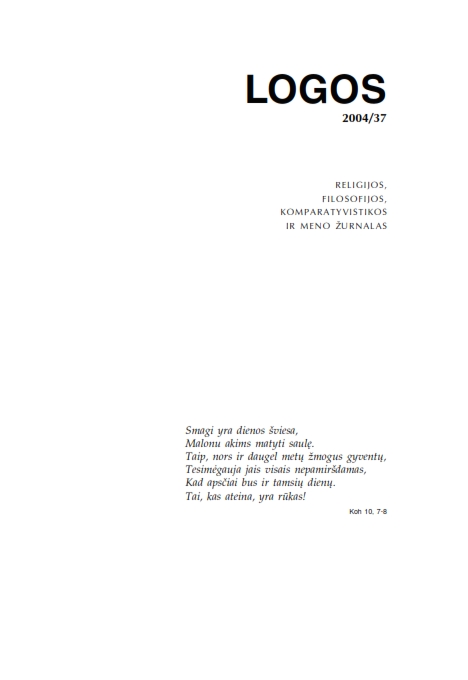Paulis Ricoeurastjaohėgelinis sugrįžimas prie Kanto
Paul Ricoeur: Posthegelian Return to Kant
Author(s): Jūratė BaranovaSubject(s): Ethics / Practical Philosophy, Contemporary Philosophy, Phenomenology, Hermeneutics
Published by: Visuomeninė organizacija »LOGOS«
Keywords: Ricoeur; Kant; moral philosophy; phenomenology; hermeneutics;
Summary/Abstract: Paul Ricouer, in this article, is considered as the most consequent “posthegelian” Kantian, who productively elaborated further his ideas in moral philosophy and created a permanent place for Kant in contemporary moral philosophy. In his book, which can be considered a study in moral philosophy, Soim ême comme un autre, Ricoeur returns to Aristotle, and to Kant as well. Aristotle he considers as the creator of ethics, Kant of morality. He sees some structural parallel affinities in their moral philosophies. They both started from monologue, after that turned to dialogue, and ended by polilogue, and included the third member each in the sphere of moral discourse. Why such a triad? Ricoeur discerns the possibility of such a triadic interpretation in the three formulations of Kantian categorical imperative: the first formulation reveals monologic, the second dialogical, the third pluralistic stages. At the end of the book Ricoeur suggests his own solution for the possible opposition between the Aristotelian and Kantian approach. Hegelian Sittlichkeit he suggests interpreting as a pluralistic version of Aristotelian phronesis, uniting in itself the possible conflict of duties Ricoeur discerns in Kantian ethics as well. He does not interpret the Hegelian concept of Sittlichkeit as a negation of Kantian Moralitat as is usually done, following Hegel himself. He looks at Kant’s moral philosophy from the perspective of tragic conflict and discerns in it the possibility of pluralistic duties and conflict as well. In my opinion, Ricoeur found the most sophisticated solution for reinterpreting and integrating Kantian moral philosophy into contemporary discourse.
Journal: LOGOS - A Journal of Religion, Philosophy, Comparative Cultural Studies and Art
- Issue Year: 2004
- Issue No: 37
- Page Range: 82-92
- Page Count: 11
- Language: Lithuanian

